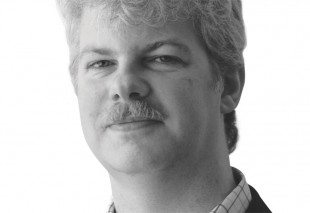

Dubai: Boom or bust in 2013?

“May you live in interesting times!” They say this amiable-sounding invocation is in fact a Chinese curse, the implication being that the quiet life is preferable.
Alas, we certainly do live in interesting times, with at least half the region in serious disarray.
For hoteliers, the Arab Spring has cast serious doubts over Egypt, Bahrain and most of the Maghreb and the Levant countries as safe destinations in which to risk a business trip or a vacation.
Iraq is mostly still very dodgy, with the arguable exception of Erbil, while Kuwait’s economic woes continue to weigh upon it, with fresh rumblings of political dissent. On the positive side, Oman, which managed to avoid serious unrest, continues to grow at its traditional, gentlemanly pace – slow and steady, no fireworks. The same could generally be said of the Northern Emirates.
Despite excellent medium-term prospects of demand growth in Abu Dhabi and Doha, both are already oversupplied with hotels, with big pipelines promising to exacerbate the situation.
People are understandably worried about how that problem will be resolved in reality — given that a bunch of art museums or a two-week, one-off football tournament, albeit the World Cup, are not the panaceas some make out them to be.
In Saudi Arabia, a serious undersupply in Riyadh is also rapidly heading towards oversupply, the Eastern Province is pretty saturated already and Jeddah has modest growth potential, but just seems to take too long to do anything.
Makkah and Madinah may yet grow significantly, in line with the Islamic pilgrimage market. Much potential exists for hotel brands to penetrate the mid-market, including serviced apartments.
But let’s be honest, nobody really gets excited about hotel performance in Saudi Arabia, except in the Holy Cities during the Hajj. No, there is only one truly hot market in our region, and that’s Dubai.
According to the DTCM, 2011 hotel revenues were the highest on record at US $4.4 billion, while earlier this year, occupancies were the highest of any city in the world.
I often reflect that if such and such a project had been completed and were open now in Dubai, it would be benefitting from the current demand windfall. But alas, development conditions have changed drastically since 2008 and bank finance remains strictly limited.
Even some of the UAE’s great, state-sponsored real estate companies have been forced to amalgamate, restructure and not only rein in their development projects, but even begin divesting assets, just to meet their debt commitments.
‘Dubai Inc’ still owes $109 billion in debt, according to the IMF, and is selling overseas hotels to help pay this off — for example, the formerly Jumeirah-operated Essex House hotel in New York, recently sold for $362.3 million. For sure, expect to hear of many similar transactions in years to come.
For private developers, it has been even more of a challenge to complete projects under current conditions.
The Palazzo Versace on Dubai Creek, the Royal Amwaj and Oceana hotels on The Palm, the planned Rosewood at DIFC and the Jumeirah Hotel at Dubai Healthcare City are prominent examples of Dubai projects initiated in the boom that are largely completed, but lack sufficient funds to finish them.
Indeed, with only one notable exception that I can think of (Al Habtoor’s just-announced 1700-room Westin/W/St. Regis complex in Dubai), most of Dubai’s pipeline also dates back to the boom. A sign of the times.
In short, don’t be fooled by the glitz and glamour of Dubai’s hotel boom. Perspicacious pundits will tell you that this phenomenon will peter out as soon as the Arab Spring countries regain some stability. Agreed, Dubai has its own sources of demand and the DTCM is by far the most effective tourism marketing machine in the GCC, but this is the reality.
And so, in my view, is the fact that development is going quiet because it has been starved of its lifeblood, debt finance.
And while the world as a whole continues to be shaken by the after-tremors of economic meltdown, while the effectiveness of capitalism itself remains in question, Dubai must accept that its future may hold at least a period of consolidation!
About the Author:
Guy Wilkinson is a director of Viability, a hospitality and property consulting firm in Dubai. For more information, e-mail: guy@viability.ae